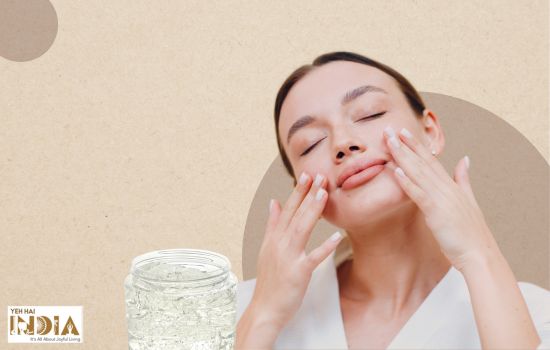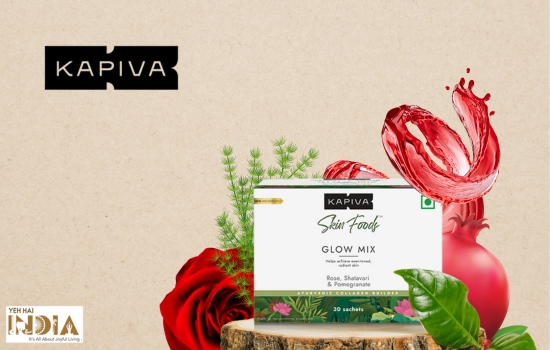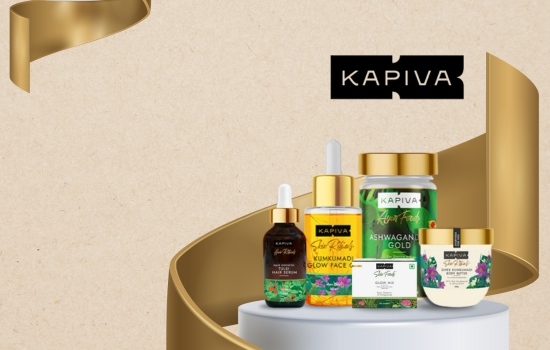If there’s one ingredient that serves as a key skin renewer for dehydrated, aged and wrinkly skin, it is Vitamin C. Despite the improvised hydrating features of skin serums, they’re not capable of treating skin damage on a deeper level without this active ingredient.
Why Vitamin C?
Vitamin C has many revolutionary effects for problem skin. This vitamin easily enters skin pores and wakes the skin up, leaving it supple and plump. It is this trait of Vitamin C which makes skin ready to absorb oils and nutrients needed to keep skin moisture intact for hours.
Unfortunately, if you continue applying serums enriched with Vitamin E or other ingredients on skin lacking in moisture and resilience, it won’t receive proper hydration as this kind of skin finds it hard to absorb a skin serum owing to problems under the skin.
Vitamin C Serum Vs Moisturizer Or Cream
There’s a reason the beauty industry suddenly came up with skin serums fortified with vitamin C instead of churning out creams, lotions and moisturizers with this essential skin vitamin. It’s because a serum is better able to deliver the benefits of vitamin C in higher concentrations compared to other skincare potions.
Another reason that goes in favour of a serum with vitamin C is that very little amount is required to maintain optimal hydration compared to a cream or a moisturizer. Yet, the results obtained are terrific. It is for this reason that the vitamin is in higher concentrations in serums, so the skin gets to reap the full benefits of the vitamin in just one or two drops.
With other forms of skin emollients, you can’t get similar results because most of them are formulated to subtly hydrate skin and prevent moisture loss with just a delicate coating built over the skin. On the contrary, serums work to rejuvenate skin internally and strengthen its moisture retention prowess.
11 Reasons To Add Vitamin C Serum In Your Skincare Routine:
1. Humidifies parched skin
When your skin finds it tough to hold moisture despite frequently slathering it with creams, lotions or moisturizers, a serum powered with the goodness of vitamin C does the task with perfection. Vitamin C is water soluble and can reinforce your skin’s natural lipid barriers to hold moisture in. This is why it is usually advisable to follow vitamin C with a moisturiser. It helps with moisture absorption and keeps it in reserve for nourishment.
2. Smoothes creases and wrinkles
For ageing skin, a vitamin C serum is the best therapy that works to offset the development of wrinkles and creases with its collagen-strengthening features. Wrinkles happen when collagen is lost enough to disturb the elasticity of the skin. Vitamin C is believed to instigate collagen formation. On consistent application, it is found to produce satisfactory anti-ageing effects.
3. Soothes Inflammation
If your skin continually develops redness due to overexposure to the sun, a serum infused with Vitamin C can help you greatly. Vitamin C, particularly in combination with vitamin E has proven beneficial effects in calming inflamed skin due to UV damage. It is a result of the scavenging properties of the antioxidants supplied by the vitamins.
4. Evens skin tone
Vitamin C serum has a miraculous effect on blotchy, uneven appearance, that results from poor blood circulation and toxin accumulation. It slows down a process called melanogenesis that is responsible for increased production of the brown pigment, melanin, on the skin. Hyperpigmentation due to sun exposure or any other non-health-related conditions responds well to regular use of vitamin C serums.
Also Read: Niacinamide: Your Skin’s Best Friend – Benefits, Safety and Tips To Use
5. Imparts glow
For drab-looking skin, a serum loaded with glow-boosting vitamin C is the best remedy that can offer an irresistible glow. The serum has skin-brightening qualities that work to halt melanin production to achieve radiant and renewed skin. Another reason to use this serum for enhanced glow is the peeling action of ascorbic acid that helps dissolve dead tissues on the skin without disrupting its moisture barrier. It also assists in skin cell renewal with its expert anti-oxidant activity to bring a natural glow.
6. Corrects sagginess
Skin sagging, a result of oxidative damage of skin cells that happens due to ageing or prolonged sun exposure, is a troubling issue that can be settled with a skin serum enriched with concentrated Vitamin C. For this, vitamin C is not just enough. You must add a powerful sunscreen to help vitamin C work its wonder. Sufficiently protected, vitamin C can get absorbed, boost collagen production and nourish the deeper layers of skin.
7. Clears blemishes and pigmentation
Harness the skin-clarifying properties of ascorbic acid with a serum fortified with vitamin C and get freedom from blemishes, patchiness and pigmentation that continue to mar your facial beauty. Ascorbic acid is known to promote skin cell renewal which helps shed skin’s outer layer composed of dead tissues much quicker and ultimately reveals clearer, blemish-free.
8. Treats sun damage
Staying out in the sun can bring plenty of unappealing effects like tanning, dark spots, freckles, sunburn and wrinkles. Vitamin C counteracts the damage brought on by free radicals which begin to produce at a higher rate as a result of extended sun exposure. Vitamin C not only addresses the effects of sun damage but also ensures optimum skin hydration. Don’t forget to apply a sunscreen of SPF 50 afterwards to seal in the moisture and nutrients for better effect.
9. Tightens pores
Enlarged pores are a terrifying condition and once it is allowed to stay, they can cause many troubles for your skin. The most lethal one is your skin’s increased exposure to toxins in the environment that find an easy way to settle inside the pores, leading them to become clogged and inflamed.
This can ruin the texture of your skin in unthinkable ways and make it vulnerable to various types of acne. A vitamin C serum proves to be quite helpful in shrinking pores to prevent any occurrence of clogging and rescues your skin from any unlikely effects resulting thereafter.
10. Fades acne scars
Those unsightly scars left from previous acne breakouts that refuse to clear up easily fade away with a hydrating vitamin C serum with added hyaluronic acid. This combination yields quicker results in clearing scars compared to hyaluronic acid-infused serum. This vitamin provides quicker respite from inflammation in pores with its wound healing capability which works to prevent scarring on acne-prone regions.
11. Safest Active Ingredient
Vitamin C is one of the safest active ingredients that you can find in today’s skincare market. It suits all skin types and does not cause any adverse reactions when a safe dose is used. It is highly hydrating and non-comedogenic in almost all forms which means everyone can benefit from its properties.
Conclusion
Vitamin C serum can do wonders in bringing respite from issues that sabotage your beauty and skin health with its improvised skin clarifying and tightening capabilities. When applied consistently, it cures scars, blemishes, wrinkles and patchiness without any need to invest in expensive therapies or potions.
For uneven-textured skin caused by acne, vitamin C serum can give results similar to a chemical peel. This is simply for the reason that just like chemical peels, vitamin C is a fruit acid which helps peel off dead tissue layers in a gentle manner and at the same time works on improving the rate of collagen synthesis in the skin to keep its youthfulness intact.
This quality of vitamin C helps you attain glowing, smooth skin minus any kind of risks that come from chemical peels.
Frequently Asked Questions
Q. Is vitamin C serum safe for use on all skin types?
Yes. In most instances, a vitamin C serum is formulated to be suitable for all skin types. However, not every product you buy contains the same type of vitamin C. It is best to do a patch test before using a vitamin C serum if you have any inflammatory skin condition. Always stick to the prescribed frequency to ensure complete safety from any complications.
Q. What are the different types of Vitamin C used in skincare formulations and serums?
Vitamin C used by the skincare industry exists in many different forms. The most commonly used vitamin C is L-ascorbic acid, which is known to be the purest form and is highly effective. It is better suited for oily and normal skin.
Magnesium ascorbyl phosphate is another type that has inflammation-reducing and scar-removal qualities. It is suited for dry and acne-prone skin. Sodium ascorbyl phosphate is best for sensitive skin due to its non-irritating nature.
Sodium ascorbate is another variant of vitamin C added in formulations for sensitive skin. It is best applied on blemished skin to obtain a clearer, unblemished appearance.
Calcium ascorbate or Ester C, is ideal for dry, aging skin. It hydrates, strengthens the defence mechanism and clears dark spots without any kind of irritation.
Q. What percentages of Vitamin C serum are safe to use for long-term benefits?
The safest range of concentration is between 5 to 20 percent depending on the type of skin problems you wish to treat. If you have severely discoloured, wrinkled skin you can safely use a serum with up to 20% vitamin C. In case you do notice redness then it’s better to stop applying the serum for some days and switch to a lesser concentration.
The safest and most effective percentage to use on any skin is 10%. It will help blur visible signs of ageing, dark spots and discolouration without causing any irritation.
Q. What is the best way to apply vitamin C serum?
The serum is best applied on cleansed skin. You can opt to use a light moisturizer before applying the serum especially if you have dry skin. Never use this serum right after exfoliating or using a skin scrub. Wait for 2 – 5 days to give enough time for skin regeneration before applying a vitamin C serum that tends to irritate scrubbed skin.
In case, you notice redness, or inflammation developing on your skin after using a vitamin C serum, then stop using the serum and use a skin ointment suggested by a dermatologist to calm the redness.
Recommended Article: Skin Care Ingredients Decoded: Hyaluronic Acid, Niacinamide, Glycolic Acid and More









